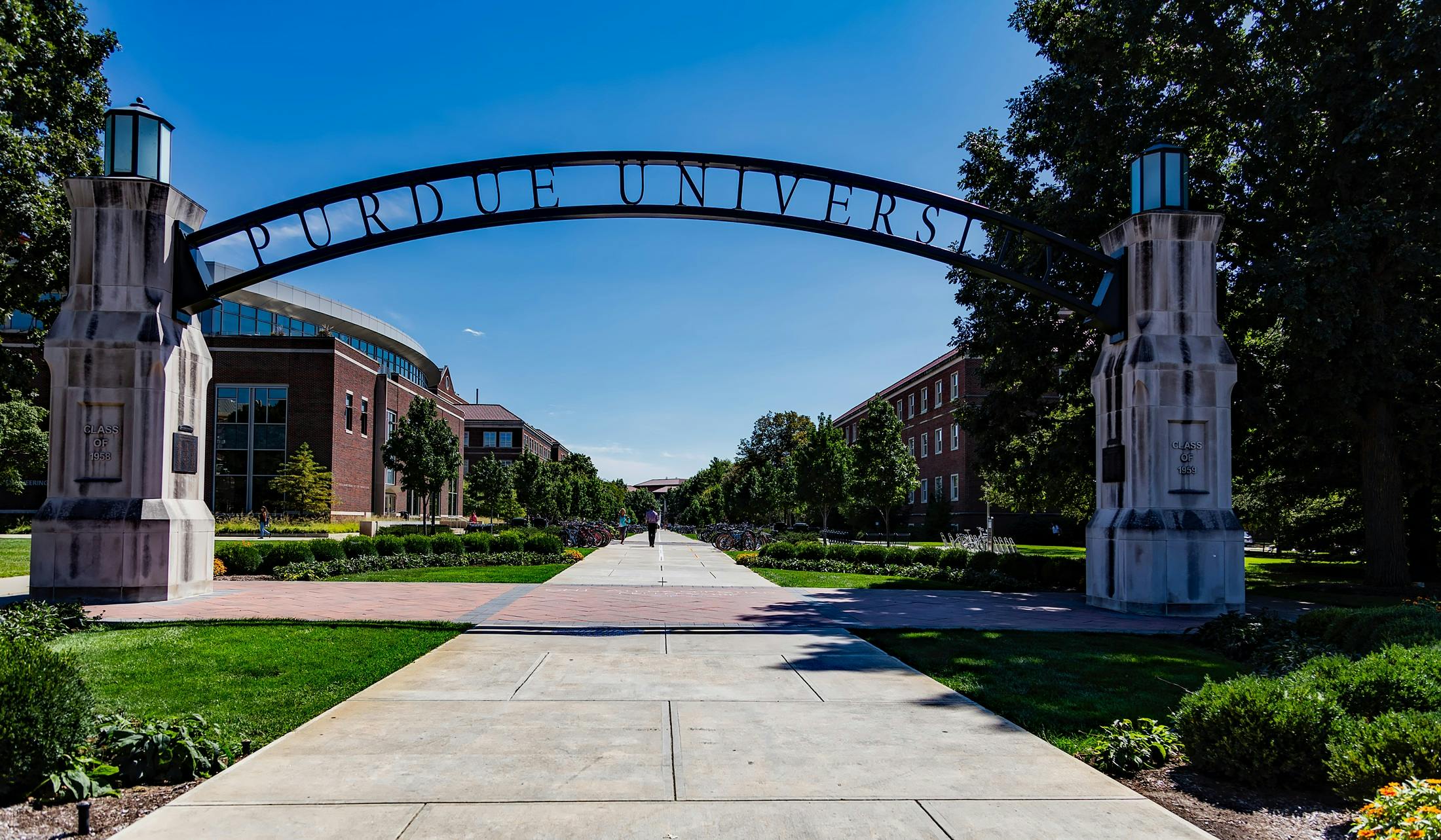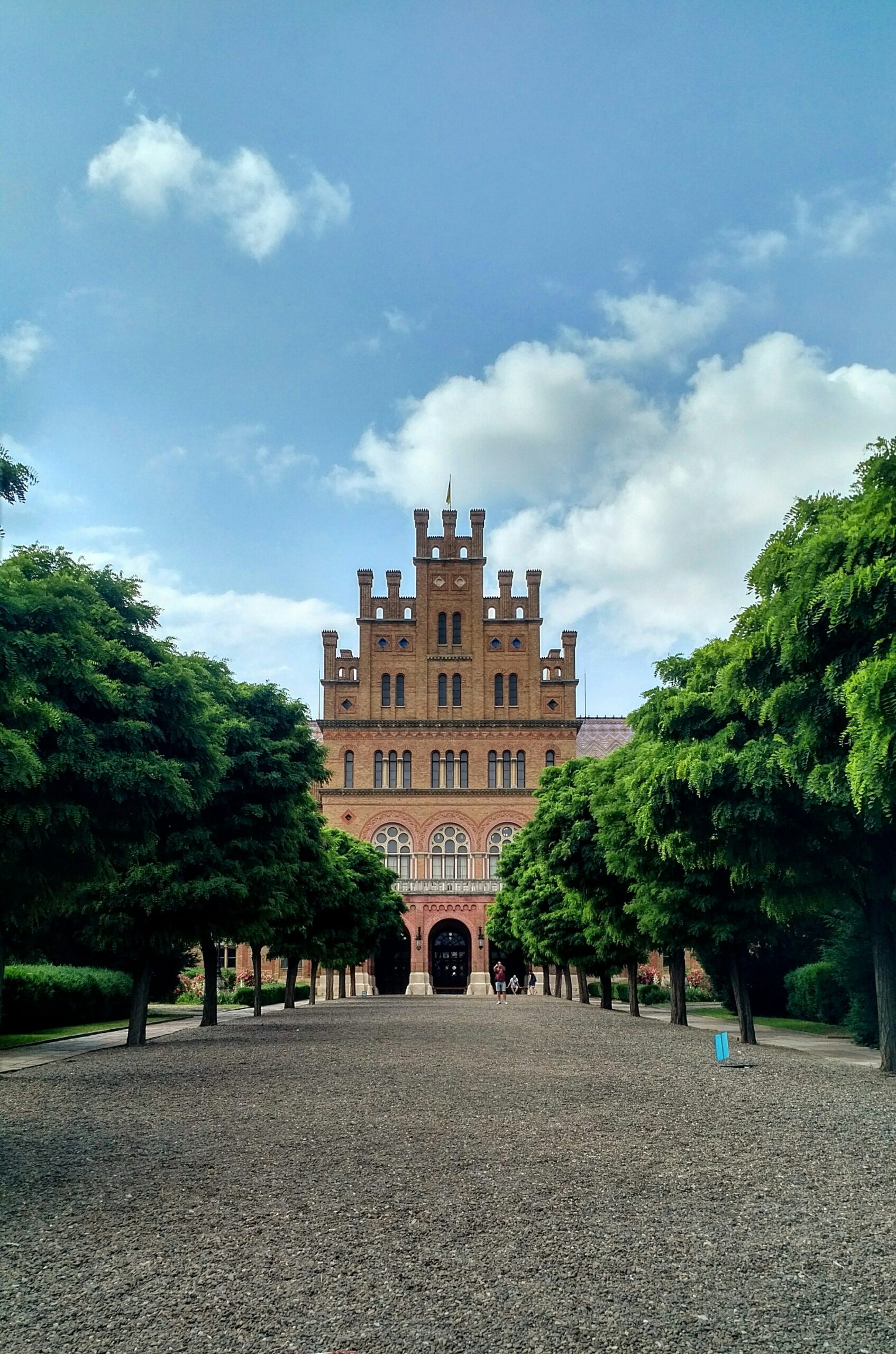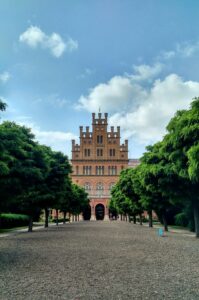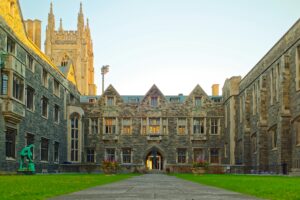University of Sydney
The University of Sydney: A Pillar of Excellence and Innovation
Introduction
Founded in 1850, the University of Sydney (USYD) stands as Australia’s first university and one of the most prestigious institutions of higher education in the world. With a rich history, a commitment to academic excellence, and a vibrant community, USYD has continuously evolved to meet the demands of a changing world. This article provides a comprehensive overview of the University of Sydney, covering its history, academic offerings, research achievements, campus life, and future prospects.
Historical Overview
Foundation and Early Years
The University of Sydney was established on October 1, 1850, through an Act of the New South Wales Parliament, with the aim of making higher education accessible to the people of Sydney and beyond. The university was modeled after the University of London, emphasizing a secular education free from religious discrimination, a progressive idea at the time. The first cohort of students began their studies in 1852, marking the beginning of an institution that would grow to become a global leader in education and research.
The initial disciplines included the classics, mathematics, and natural sciences, reflecting the broad liberal arts education envisioned by its founders. The first chancellor, Sir Charles Nicholson, and the first principal, Dr. John Woolley, were instrumental in shaping the university’s early development, establishing a strong foundation for future growth.
Expansion and Development
Throughout the late 19th and early 20th centuries, the University of Sydney expanded its academic offerings and physical infrastructure. New faculties and departments were established, including Law (1890), Medicine (1883), and Engineering (1883). The construction of iconic sandstone buildings, such as the Quadrangle, gave the university its distinctive architectural character.
The post-World War II era brought a significant increase in student enrolment and research activity, driven by government policies aimed at expanding access to higher education. The university continued to diversify its academic programs and invest in research facilities, solidifying its reputation as a leading institution of higher learning.
Academic Excellence
Faculties and Schools
The University of Sydney is organized into nine faculties and three university schools, each offering a diverse range of undergraduate, postgraduate, and professional programs. These academic units include:
- Faculty of Arts and Social Sciences: Known for its strong emphasis on humanities, social sciences, and languages, fostering critical thinking and cultural understanding.
- Faculty of Business: Offering programs in commerce, economics, and management, with a focus on global business practices and leadership.
- Faculty of Engineering: Providing cutting-edge education and research in various engineering disciplines, including civil, mechanical, electrical, and biomedical engineering.
- Faculty of Medicine and Health: Comprising the Sydney Medical School, Sydney Dental School, and several health-related disciplines, it is a leader in medical research and education.
- Faculty of Science: Covering a wide array of scientific fields, from biology and chemistry to physics and environmental science.
- Sydney Law School: Renowned for its rigorous legal education and influential research in law and justice.
- Faculty of Architecture, Design, and Planning: Focused on urban design, architecture, and planning, promoting sustainable and innovative design solutions.
- Sydney Conservatorium of Music: Offering comprehensive music education, from classical performance to contemporary music studies.
- Faculty of Education and Social Work: Preparing future educators and social workers through research-driven programs and practical training.

Global Rankings and Achievements
The University of Sydney consistently ranks among the top universities worldwide. According to the QS World University Rankings 2024, it is ranked 41st globally and 2nd in Australia. Its programs in law, medicine, education, and engineering are frequently placed in the top 20 internationally, reflecting the university’s commitment to academic excellence and global impact.
The university’s research output is another testament to its standing. With numerous research centers and institutes, it addresses critical global challenges in health, technology, the environment, and society. Notable achievements include groundbreaking research in cancer treatment, climate change adaptation, and artificial intelligence.
Research and Innovation
Research Institutes and Centers
The University of Sydney hosts a multitude of research institutes and centers that drive innovation across various disciplines. These include:
- Charles Perkins Centre: Focused on understanding and addressing chronic diseases such as diabetes, obesity, and cardiovascular disease through interdisciplinary research.
- Brain and Mind Centre: Conducting pioneering research on mental health, neurological disorders, and brain function.
- Sydney Nano Institute: Advancing nanoscience and nanotechnology to create new materials and solutions for industry and healthcare.
- Sydney Environment Institute: Addressing environmental challenges through interdisciplinary research on sustainability, climate change, and biodiversity.
Collaboration and Partnerships
Collaboration is integral to the University of Sydney’s research strategy. The university partners with leading institutions, governments, and industries worldwide to tackle complex global issues. Key partnerships include the Group of Eight (Go8), a coalition of Australia’s leading research-intensive universities, and numerous international research collaborations.
The university also fosters innovation through industry engagement. Programs like Sydney Innovation Hub support startups and entrepreneurs in translating research into practical solutions and commercial opportunities.
Campus Life
Student Demographics and Diversity
The University of Sydney boasts a diverse and inclusive community, with over 70,000 students, including 20,000 international students from more than 140 countries. This cultural diversity enriches the campus experience, promoting a global perspective and fostering mutual understanding.
Campus Facilities and Resources
The university’s main campus in Camperdown/Darlington is a blend of historic sandstone buildings and modern facilities, offering a vibrant and conducive environment for learning and research. Key features include:
- Libraries: The Fisher Library, the largest on campus, offers extensive collections in various fields. The university’s library system includes specialized libraries for law, health sciences, and architecture.
- Research Facilities: State-of-the-art laboratories, research centers, and technology hubs support cutting-edge research and innovation.
- Accommodation: On-campus housing options provide a supportive community environment for students. Residential colleges offer academic support, mentoring, and extracurricular activities.
- Sports and Recreation: The Sydney Uni Sport & Fitness facilities cater to a wide range of sports and fitness activities, encouraging a healthy and active lifestyle.
- Arts and Culture: The university hosts numerous cultural events, exhibitions, and performances. The Seymour Centre and the University Art Gallery are notable cultural institutions affiliated with the university.

Student Support and Opportunities
Academic Support
The University of Sydney is dedicated to supporting its students’ academic success. It offers a range of services, including academic advising, tutoring, and workshops on study skills and time management. The Learning Centre provides personalized assistance to help students achieve their academic goals.
Career Services
The university’s Careers Centre helps students navigate their career paths, offering career counseling, job search resources, and networking opportunities. The centre organizes career fairs, employer presentations, and internship programs, connecting students with potential employers.
Extracurricular Activities
Extracurricular activities are a vital part of the student experience at the University of Sydney. The university boasts over 200 student clubs and societies, covering a wide range of interests from academic and professional groups to cultural and recreational clubs. These organizations provide opportunities for leadership development, community service, and social engagement.
Global Learning
Global learning opportunities are a cornerstone of the University of Sydney’s educational approach. The university offers numerous exchange programs, study abroad options, and internships with partner institutions around the world. These experiences enhance students’ global awareness and prepare them for international careers.
Notable Alumni
The University of Sydney has produced an impressive array of alumni who have made significant contributions across various fields. Some notable alumni include:
- John Howard: Former Prime Minister of Australia.
- Gough Whitlam: Former Prime Minister of Australia.
- Michael Kirby: Former Justice of the High Court of Australia.
- Judy Davis: Acclaimed actress and Academy Award nominee.
- Germaine Greer: Influential feminist writer and academic.
Challenges and Future Prospects
Addressing Global Challenges
As a leading institution, the University of Sydney is at the forefront of addressing global challenges such as climate change, public health, and social inequality. Its research initiatives and academic programs are geared towards finding innovative solutions to these pressing issues.
Embracing Technological Advancements
The rapid pace of technological change presents both opportunities and challenges for higher education. The University of Sydney is investing in digital infrastructure, online learning platforms, and cutting-edge research in fields like artificial intelligence and data science to stay ahead of these trends.
Enhancing Accessibility and Inclusion
The university is committed to enhancing accessibility and inclusion for all students, regardless of their background. Initiatives such as scholarships, outreach programs, and support services aim to ensure that higher education is within reach for underrepresented groups.
Conclusion
The University of Sydney, with its rich history, commitment to academic excellence, and forward-thinking approach, continues to be a leader in higher education. Its contributions to research, innovation, and societal development underscore its role as a vital institution in Australia and the world. As it navigates the challenges and opportunities of the 21st century, the University of Sydney remains dedicated to shaping the future through education, research, and community engagement.
This comprehensive overview highlights the myriad ways in which the University of Sydney influences and shapes the academic, cultural, and social landscapes, affirming its status as a premier institution of learning and discovery.
How To Apply
Applying to the University of Sydney involves several steps, including choosing your desired program, checking entry requirements, preparing necessary documents, and submitting your application. This guide provides a detailed overview of the application process for both undergraduate and postgraduate programs, as well as additional information for international students.
Step-by-Step Application Guide
Step 1: Choose Your Program
Undergraduate Programs
The University of Sydney offers a wide range of undergraduate programs across various faculties. Popular undergraduate degrees include:
- Bachelor of Arts
- Bachelor of Science
- Bachelor of Commerce
- Bachelor of Engineering
- Bachelor of Laws
To explore all available undergraduate programs, you can visit the University of Sydney’s course finder.
Postgraduate Programs
The university also offers numerous postgraduate programs, including coursework and research degrees. These include:
- Master’s degrees (e.g., Master of Business Administration, Master of Engineering)
- Doctoral programs (PhD)
- Graduate diplomas and certificates
For a full list of postgraduate programs, check the University of Sydney’s course finder.
Step 2: Check Entry Requirements
Academic Requirements
Each program has specific academic entry requirements. For undergraduate programs, this typically includes completion of secondary education equivalent to the Australian Year 12, with specific subject prerequisites and a competitive ATAR (Australian Tertiary Admission Rank) or equivalent.
For postgraduate programs, applicants must hold an undergraduate degree in a relevant field. Research degrees may also require prior research experience or a master’s degree.
English Language Proficiency
Non-native English speakers must demonstrate English language proficiency. Accepted tests and minimum scores include:
- IELTS: Overall score of 6.5 with no band less than 6.0
- TOEFL iBT: Overall score of 85 with no band less than 19
- PTE Academic: Overall score of 61 with no communicative skill below 54
Step 3: Prepare Necessary Documents
When preparing your application, gather the following documents:
- Academic transcripts and certificates
- English language test results
- Personal statement or statement of purpose
- Curriculum vitae (CV) or resume (for some postgraduate programs)
- References or letters of recommendation (for some postgraduate programs)
- Research proposal (for research degrees)
Step 4: Submit Your Application
Undergraduate Applications
Australian and New Zealand students, as well as international students completing an Australian Year 12 or International Baccalaureate (IB) in Australia, should apply through the Universities Admissions Centre (UAC). Applications open in April for entry in the following year.
International students can apply directly to the University of Sydney through the online application portal.
Postgraduate Applications
Postgraduate applications are submitted directly to the University of Sydney via the online application portal. Application deadlines vary by program, so it’s crucial to check the specific dates for your course of interest.
Step 5: Apply for Scholarships and Financial Aid
The University of Sydney offers a range of scholarships and financial aid options for both domestic and international students. These include merit-based scholarships, need-based grants, and specific awards for research students. To apply for scholarships, follow the instructions provided on the university’s scholarships page and submit any additional required documentation.
Step 6: Track Your Application and Await the Outcome
After submitting your application, you will receive a confirmation email with details on how to track your application status. The university will review your application and notify you of the outcome. This process can take several weeks, so be patient and ensure you check your email regularly for updates.
Additional Information for International Students
Visa Requirements
International students accepted into a full-time program must apply for an Australian student visa (subclass 500). To apply for a visa, you will need:
- A Confirmation of Enrolment (CoE) from the University of Sydney
- Evidence of sufficient funds
- Overseas Student Health Cover (OSHC)
- A valid passport
- Proof of English language proficiency
The Department of Home Affairs website provides detailed information on visa requirements and the application process.
Accommodation
The University of Sydney offers various accommodation options, including residential colleges, student apartments, and shared houses. It’s advisable to apply for accommodation as soon as you receive your offer of admission, as spaces can fill up quickly.
FAQS
FAQs About Applying to the University of Sydney
General Application Questions
Q1: What is the application process for the University of Sydney?
A1: The application process involves selecting your desired program, checking the entry requirements, preparing necessary documents, and submitting your application through the appropriate portal. Undergraduate applicants typically apply through UAC (for domestic students) or the university’s online portal (for international students). Postgraduate applications are submitted directly through the university’s online portal.
Q2: What are the application deadlines?
A2: Application deadlines vary by program. Undergraduate UAC applications typically open in April for entry in the following year. Direct international applications have varying deadlines depending on the course. Postgraduate application deadlines also vary by program. Check the specific deadlines for your program of interest on the university’s website.
Q3: How do I check the status of my application?
A3: After submitting your application, you will receive a confirmation email with instructions on how to track your application status online. Regularly check your email and the application portal for updates.
Entry Requirements
Q4: What are the academic entry requirements?
A4: Academic entry requirements differ by program. For undergraduate programs, you need to have completed secondary education equivalent to the Australian Year 12, meeting specific subject prerequisites and a competitive ATAR or equivalent. For postgraduate programs, you generally need an undergraduate degree in a relevant field; research degrees may require prior research experience or a master’s degree.
Q5: What are the English language requirements?
A5: Non-native English speakers must provide evidence of English language proficiency. Accepted tests and minimum scores include:
- IELTS: Overall score of 6.5 with no band less than 6.0
- TOEFL iBT: Overall score of 85 with no band less than 19
- PTE Academic: Overall score of 61 with no communicative skill below 54
Some programs may have higher English language requirements.
Supporting Documents
Q6: What documents do I need to submit with my application?
A6: Required documents typically include:
- Academic transcripts and certificates
- English language test results
- Personal statement or statement of purpose
- Curriculum vitae (CV) or resume (for some postgraduate programs)
- References or letters of recommendation (for some postgraduate programs)
- Research proposal (for research degrees)
Q7: How do I submit my documents?
A7: Documents should be uploaded through the online application portal as part of your application. Ensure all files are clear, legible, and in the specified format (e.g., PDF).
Scholarships and Financial Aid
Q8: What scholarships are available?
A8: The University of Sydney offers a range of scholarships for both domestic and international students, including merit-based scholarships, need-based grants, and specific awards for research students. Details on available scholarships and application processes can be found on the university’s scholarships page.
Q9: How do I apply for scholarships?
A9: The application process for scholarships varies. Some scholarships are automatically considered with your application for admission, while others require a separate application. Follow the instructions on the university’s scholarships page and submit any additional required documentation by the specified deadlines.
International Students
Q10: What are the visa requirements for international students?
A10: International students must apply for an Australian student visa (subclass 500). Required documents include:
- Confirmation of Enrolment (CoE) from the University of Sydney
- Evidence of sufficient funds
- Overseas Student Health Cover (OSHC)
- A valid passport
- Proof of English language proficiency
More detailed information is available on the Department of Home Affairs website.
Q11: What accommodation options are available for international students?
A11: The University of Sydney offers various accommodation options, including residential colleges, student apartments, and shared houses. It’s advisable to apply for accommodation as soon as you receive your offer of admission, as spaces can fill up quickly.
Additional Support
Q12: Where can I find help if I have questions about my application?
A12: If you have questions or need assistance, you can contact the University of Sydney’s admissions office or international student services. They provide guidance and support throughout the application process.
Q13: Are there any resources to help with the application process?
A13: The University of Sydney provides various resources, including application guides, webinars, and one-on-one consultations to help applicants understand the process and requirements. Check the university’s website for available resources and support services.
Program-Specific Questions
Q14: Can I apply to multiple programs?
A14: Yes, you can apply to multiple programs. However, each application may require separate documentation and application fees. Ensure you meet the entry requirements for each program you apply to.
Q15: How do I apply for a research degree?
A15: To apply for a research degree, you need to identify a potential supervisor, prepare a research proposal, and submit your application through the university’s online portal. Research degree applications often require additional documentation, such as a curriculum vitae (CV), academic transcripts, and letters of recommendation. Check the specific requirements for your chosen research area on the university’s website.














Post Comment